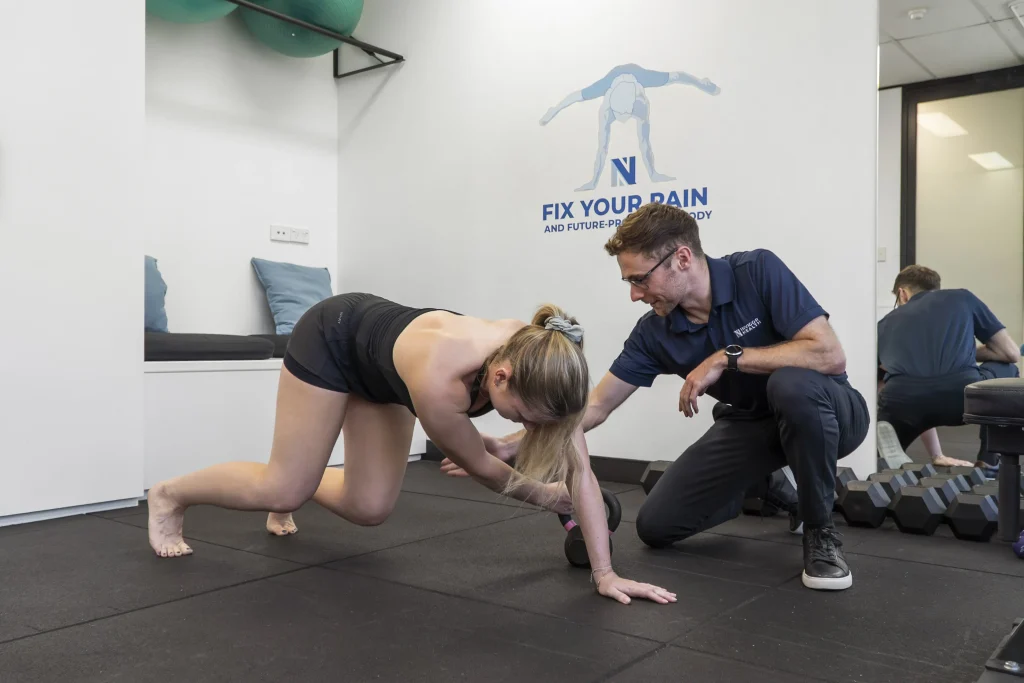When we think of physiotherapy, the first image that often comes to mind is recovering from a sports injury or post-surgery rehabilitation. However, physiotherapy offers far more than just injury recovery. It’s a powerful tool that can help people of all ages improve their overall health, manage pain, prevent future injuries, and lead a more active, fulfilling life. In this blog, we’ll explore what physiotherapists do and how their treatments can significantly improve your quality of life.
What Do Physiotherapists Do?
Physiotherapists, also known as physical therapists, are healthcare professionals focused on enhancing movement and managing pain to improve overall physical function. Their work spans a wide range of treatment methods tailored to individuals’ needs. Here are some key aspects of physiotherapy:
- Assessment & Diagnosis
Physiotherapists begin by thoroughly assessing a patient’s movement, posture, and range of motion. By identifying dysfunctions or areas of pain, they can determine the root cause of the issue, rather than simply addressing the symptoms. - Personalized Treatment Plans
Based on the assessment, physiotherapists create customized treatment plans. These plans often involve manual therapy (such as massage or joint mobilizations), exercises, and sometimes modalities like heat or electrical stimulation to address the pain. - Movement & Exercise
One of the key strategies in physiotherapy is exercise therapy. Strengthening weak muscles, improving flexibility, and restoring movement patterns help the body function better, reducing pain and preventing future injuries. - Patient Education & Prevention
Physiotherapists also educate patients on how to protect themselves from future injury. They provide guidance on posture, body mechanics, ergonomics, and healthy movement practices. This education ensures long-term physical health and helps prevent conditions from returning. - Holistic Rehabilitation
Physiotherapy isn’t just about getting people back to baseline health. It’s about maximizing their physical potential through rehabilitation. Whether recovering from surgery or dealing with chronic pain, physiotherapy enables patients to restore strength, mobility, and function, allowing them to return to everyday activities with confidence.

5 Ways Physiotherapy Can Improve Your Quality of Life
1. Pain Relief and Management
Pain, whether acute or chronic, is one of the most common reasons people seek physiotherapy. Physiotherapists use various hands-on techniques, including joint mobilizations, muscle stretching, and massage, to help alleviate pain and discomfort.
By focusing on improving joint mobility, soft tissue flexibility, and reducing muscle tension, physiotherapy can help manage pain (like an acute injury) and long-term pain (such as arthritis or chronic back pain).
Benefit: Reduced pain means you’re able to move with more ease and comfort, allowing you to perform daily activities without limitation.
2. Improved Mobility and Flexibility
Physiotherapy is key in restoring and improving flexibility and mobility. Through targeted exercises and manual therapy, physiotherapists help patients regain movement in stiff joints and tight muscles.
By focusing on areas with limited mobility, physiotherapists help patients regain their full range of motion. For example, if you’re recovering from a knee replacement, physiotherapists can use gentle exercises and stretching to help restore normal knee movement and prevent stiffness.
Benefit: Improved mobility allows individuals to return to their regular activities—such as walking, bending, or lifting—without pain, boosting their overall quality of life.
3. Prevention of Future Injuries
One of the most important aspects of physiotherapy is its focus on prevention. Physiotherapists assess risk factors that might lead to future injuries, such as muscle imbalances, poor posture, or improper movement patterns.
With personalized exercises and guidance on improving posture and ergonomics, physiotherapy helps prevent the recurrence of old injuries and minimizes the risk of new ones. This is particularly beneficial for athletes, workers, and older adults who are at a higher risk of falling.
Benefit: With better body mechanics and strengthening exercises, you’ll have a lower risk of future injuries, which means fewer visits to the doctor and a more active lifestyle.
4. Management of Chronic Conditions
Chronic conditions like arthritis, fibromyalgia, and even neurological disorders can significantly affect daily life. Physiotherapy plays a vital role in managing such conditions, not only by alleviating pain but by improving function and quality of life.
For individuals with chronic conditions, physiotherapy focuses on improving movement, managing pain, and enhancing strength and endurance. For instance, patients with arthritis can benefit from strengthening exercises and joint protection strategies to reduce pain and improve mobility.
Benefit: Physiotherapy helps patients maintain a level of independence and physical function, allowing them to engage in activities they enjoy, despite their condition.
5. Better Balance and Posture
Posture correction and balance improvement are key areas of physiotherapy, especially for older adults at risk of falls. Physiotherapists work to improve posture, enhance balance, and prevent falls by strengthening key muscle groups and improving flexibility.
Physiotherapists design specific exercises to target weak or imbalanced muscles that may be causing poor posture or balance issues. They may also incorporate activities to improve proprioception (awareness of body position) and coordination, reducing the likelihood of falls.
Benefit: Improved balance and posture lead to increased confidence and independence, especially for older adults. This reduces the risk of falls, which is crucial for maintaining physical health and overall well-being.
Summary
Physiotherapy is more than just a treatment for injuries. It’s an essential part of maintaining and improving your quality of life. Whether you’re recovering from surgery, managing a chronic condition, or simply looking to improve your physical health, physiotherapy offers tailored solutions that address your unique needs. With benefits ranging from pain relief and mobility enhancement to injury prevention and improved balance, physiotherapy empowers individuals to live healthier, more active, and independent lives.
FAQs
What is physiotherapy?
Physiotherapy is a healthcare profession focused on improving movement, reducing pain, and maximising physical function.
What does a physiotherapist do?
They assess how you move, identify issues (like stiffness, weakness, poor posture), then create a tailored plan using exercises, manual therapy and education.
How can physiotherapy improve my quality of life?
It can reduce pain, restore mobility, prevent future injuries, help manage chronic conditions and improve balance/posture — all of which make everyday life easier.
Will I notice results quickly?
It depends on your condition. Some improvements may be seen in a few sessions (for acute issues); for chronic or complex problems, progress may take longer.
Can physiotherapy help if I have a long‑term health issue?
Yes. Physiotherapy is useful for chronic conditions (e.g., arthritis, post‑surgery rehab) by helping maintain function and improve life quality.
Ready to improve your quality of life
Consider scheduling a physiotherapy appointment with Invigor Health and take the first step towards a more vibrant and pain-free future. Contact us today to book your session!
